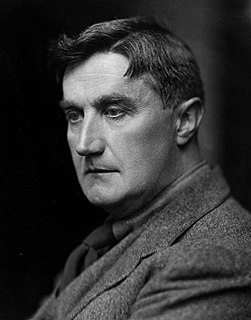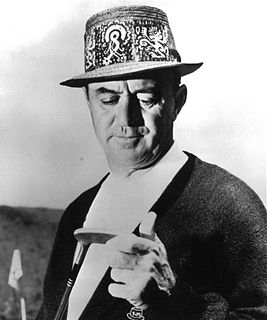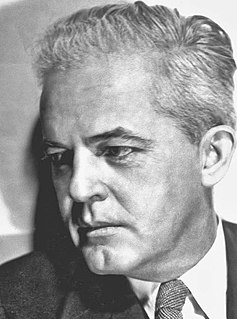A Quote by Joan Robinson
Progress is slow partly from mere intellectual inertia. In a subject where there is no agreed procedure for knocking out errors, doctrines have a long life. A professor teaches what he was taught, and his pupils, with a proper respect and reverence for teachers, set up a resistance against his critics for no other reason than that it was he whose pupils they were.
Related Quotes
I have a true aversion to teaching. The perennial business of a professor of mathematics is only to teach the ABC of his science; most of the few pupils who go a step further, and usually to keep the metaphor, remain in the process of gathering information, become only Halbwisser [one who has superficial knowledge of the subject], for the rarer talents do not want to have themselves educated by lecture courses, but train themselves. And with this thankless work the professor loses his precious time.
A game master or teacher who was primarily concerned with being close enough to the "innermost meaning" would be a very bad teacher. To be candid, I myself, for example, have never in my life said a word to my pupils about the "meaning" of music; if there is one it does not need my explanations. On the other hand I have always made a great point of having my pupils count their eighths and sixteenths nicely. Whatever you become, teacher, scholar, or musician, have respect for the "meaning" but do not imagine that it can be taught.
The man who is an initiate of one of the great Mystery Schools never fears to let his pupils outdistance him, because he knows that it stands him in good stead with his superiors if he is constantly sending up to them aspirants who 'make good.' He therefore never tries to hold back a promising pupil, because he has no need to fear that pupil, if allowed to penetrate into the Mysteries, would spy out the nakedness of the land; he will rather bring back a report of its exceeding richness, and thereby confirm the statements of his teacher and spur his fellow pupils to yet greater eagerness.
Liebig was not a teacher in the ordinary sense of the word. Scientifically productive himself in an unusual degree, and rich in chemical ideas, he imparted the latter to his advanced pupils, to be put by them to experimental proof; he thus brought his pupils gradually to think for themselves, besides showing and explaining to them the methods by which chemical problems might be solved experimentally.
The mere mechanical technique of acting can be taught, but the spirit that is to give life to lifeless forms must be born in a man. No dramatic college can teach its pupils to think or to feel. It is Nature who makes our artists for us, though it may be Art who taught them their right mode of expression.
We believe that arithmetic as it has been taught in grade schools until quite recently has such a meagre intellectual content that the oft-noted reaction against the subject is not an unfortunate rebellion against a difficult subject, but a perfectly proper response to a preoccupation with triviality.
When I recall my teachers at school, I realise that half of them were abnormal. . . . We pupils of old Austria were brought up to respect old people and women. But on our professors we had no mercy; they were our natural enemies. The majority of them were somewhat mentally deranged, and quite a few ended their days as honest-to-God lunatics! . . . I was in particular bad odor with the teachers. I showed not the slightest aptitude for foreign languages - though I might have, had not the teacher been a congenital idiot. I could not bear the sight of him.
The child had indeed shut up but all the questions that had accumulated on his tongue circulated in his mouth, moved through the passages of his nose and climbed up from there to tickle into his teardrop ducts, so in his moss green pupils, curious, insistent, accusing sparks of questions continued to light up and fade away like fireflies flitting about on summer nights.





































